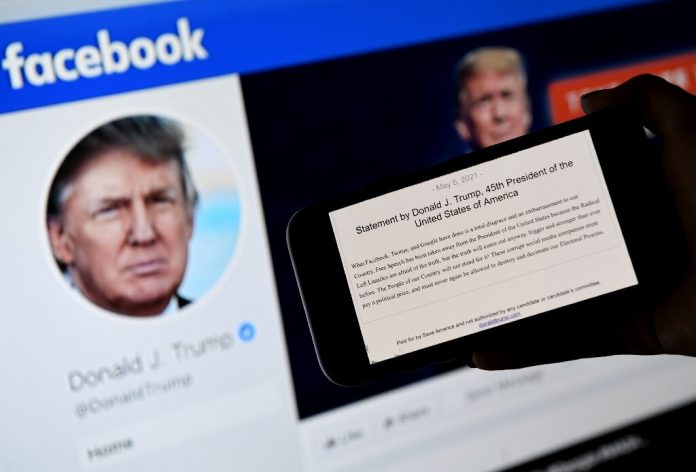The Facebook Oversight Board recently announced that they will uphold former President Donald Trump’s January 7, 2021, Facebook and Instagram ban, but said that it was “not appropriate” for Facebook to impose an indefinite suspension. The board found two of Trump’s Facebook posts on January 6 that praised/supported people engaged in violence, which referred to citizens as “great patriots” and calls to “remember this day forever.” They wrote that there was a clear and immediate risk of harm in his words of support and that they legitimized the violent actions of the Capitol riot. They said Facebook was “justified” in suspending Trump’s account and extending that suspension on January 7, but that the suspension should not have been indefinite.
The board has given Facebook six months to review the ban on Trump’s account and make a decision on whether or not he will be permanently banned or if another penalty is appropriate. The board adds that the company had violated its own rules and did not apply clear and fair standards for all Facebook users at the time.
“However, it was not appropriate for Facebook to impose the indeterminate and standardless penalty of indefinite suspension. Facebook’s normal penalties include removing the violating content, imposing a time-bound period of suspension, or permanently disabling the page and account,” the board said.
We’ve seen in the past how one person says something and gets banned and another person says the exact same thing and there’s an excuse to not ban them. In October, Facebook and Twitter even suppressed users from sharing a story that questioned the Hunter Biden laptop story and went so far as to suspend the New York Post’s Twitter account.
Social media has gotten too powerful and too divisive, which is why more conservatives are fleeing their sites and looking for platforms that support free speech. The Trump ban ignited a debate over the role of Big Tech in society, political censorship, and protecting free speech. It also raised the question of social media has the power to silence a world leader.
“Whether you believe the decision was justified or not, many people are understandably uncomfortable with the idea that tech companies have the power to ban elected leaders. Many argue private companies like Facebook shouldn’t be making these big decisions on their own,” said Nick Clegg, Facebook’s vice president of global affairs and communications.
Conservatives have been fighting back in a number of ways. MyPillow CEO Mike Lindell launched his own social media platform ‘Frank’ to protect free speech. Parler, another conservative-friendly social media platform, has also worked hard at remaining online after Big Tech tried to wipe them from the App Stores earlier this year. Others such as Sen. Rick Scott and Sen. Josh Hawley have introduced legislation to hold Big Tech accountable for their actions.
“Big tech thinks it can control everything. Companies that censor Americans while giving brutal dictators a pass should not have free rein over your personal data to use for their benefit. I introduced the DATA Act to hold big tech accountable,” tweeted Sen. Scott shortly after the board’s decision.
The board’s decision comes after Trump launched his own communications platform as a way to post and respond to users. He declared it a “beacon of freedom” and a place to speak freely and safely amid the censorship of Big Tech. “What Facebook, Twitter, and Google have done is a total disgrace and an embarrassment to our Country. Free Speech has been taken away from the President of the United States because the Radical Left Lunatics are afraid of the truth, but the truth will come out anyway, bigger and stronger than ever before,” Trump said in a statement regarding the board’s decision.
While liberals are celebrating Trump’s social media ban today, what’s stopping Big Tech from silencing them tomorrow?


